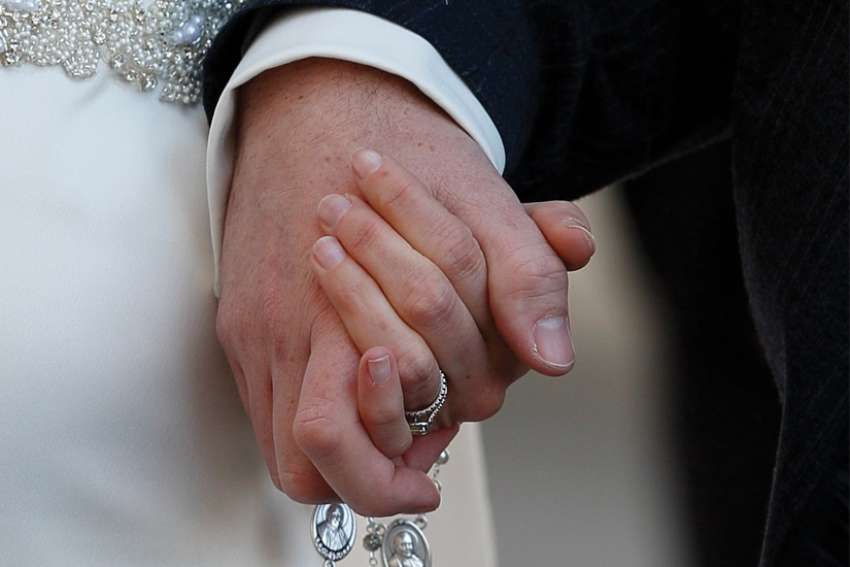The problem with the tagline “love is love” or sometimes “love is love is love is love,” is not that it’s a tautology as many claim. The problem is that it promotes a false idea of love. “Love is love” purports that all “love” is the same, without differentiation or degree. If you think I’m going to tackle the meaning of love in this brief column … you’re right.
Whose definition of love am I parsing here? The definition found in the Word of God. In my world, the Creator and Lord of All gets to define pretty much everything. I will never forget this scrawl that I saw in a bathroom stall many years ago: “Love is love, God is belief.” If this graffiti is correct, “love” can then be whatever we believe it to be, whatever we want it to be, which usually winds up having something to do solely with feelings. And that’s pretty much where we seem to be as a culture, and have been for quite some time. It’s just more recently that the ramifications of false notions of love are being pushed to their logical lengths — in an accelerated manner.
Even the ancient Greeks knew there are many different kinds of love and it depends on who precisely is involved and what their relationship is to each other. Is this person a child? My boss? Already married? A man? A woman? A relative? Do we have each other’s best interest at heart? It matters! Most of us are familiar with these three Greek designations of love: eros (sexual, physical, dynamic), philia (friendship), agape (selfless) — but there are many more! Storge is familial love, there’s playful love, and the list goes on.
The Bible tells us that “God is love.” So, who is God and what is He like? Jesus tells us: “He who has seen me has seen the Father.” This Jesus died for love of us: to save us from hell, to re-open Heaven, to take away the sins of the world, to live in our hearts through sanctifying grace, to destroy the works of the devil, to incorporate us into His Mystical Body, the Church. “No greater love hath any one than to lay down one’s life for another.”
Thomas Aquinas gives us a working definition (paraphrased here) of love in action, practical love, applied love that inheres in every situation we could possible find ourselves in: “To will and do the good of the other — no matter what it costs me.” Say what now? 1) Ultimately love is an act of the will. 2) “The good” is what God has told us is good, not what we think is good or think we are experiencing as a good. 3) Love almost always requires some form of sacrifice on our part, some kind of self-giving and unselfishness, perhaps without return.
Many people today can and do sign on to #1 and #3. It’s #2 where it so often goes awry. It requires that we know what is truly good, and that’s not always obvious. In fact, the actual good can be counterintuitive. Number two requires that we sign up to something outside of ourselves, a moral compass not of our own making. In fact, conscience is not “doing what I think is right,” it’s “doing what I know is right,” because conscience needs to be formed outside of ourselves first, and then we use these “external” truths to discern what might be a grey area, a nuanced problem, a sticky wicket.
We are so blessed to be Catholic Christians because we can form our consciences correctly on the surety of the promise of Jesus Christ to be with us forever.
We have Divine Revelation, the deposit of faith, the inerrancy of Scripture. We have the Holy Spirit guiding the Magisterium. We have the Catechism of the Catholic Church, dogmas, sound philosophy and the examples of the saints leading the way. There’s a saying that “if you base your life on principles, most of your decisions are already made before you encounter them.”
Jesus did not come to abolish The Law, but to fulfill The Law. True, godly love fulfills The Law. It’s time to reclaim our understanding of what constitutes true love. True love doesn’t always feel good, but then, it’s not just about feelings.
We and the culture at large are in need of constant evangelization and catechesis, because when the Church doesn’t evangelize the culture, the culture evangelizes the Church.
(Sr. Helena, fsp, is a Daughter of St. Paul. She holds a Masters in Media Literacy Education and studied screenwriting at UCLA. www.HellBurns.com Twitter: @srhelenaburns)


